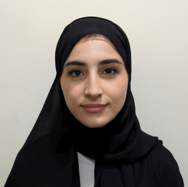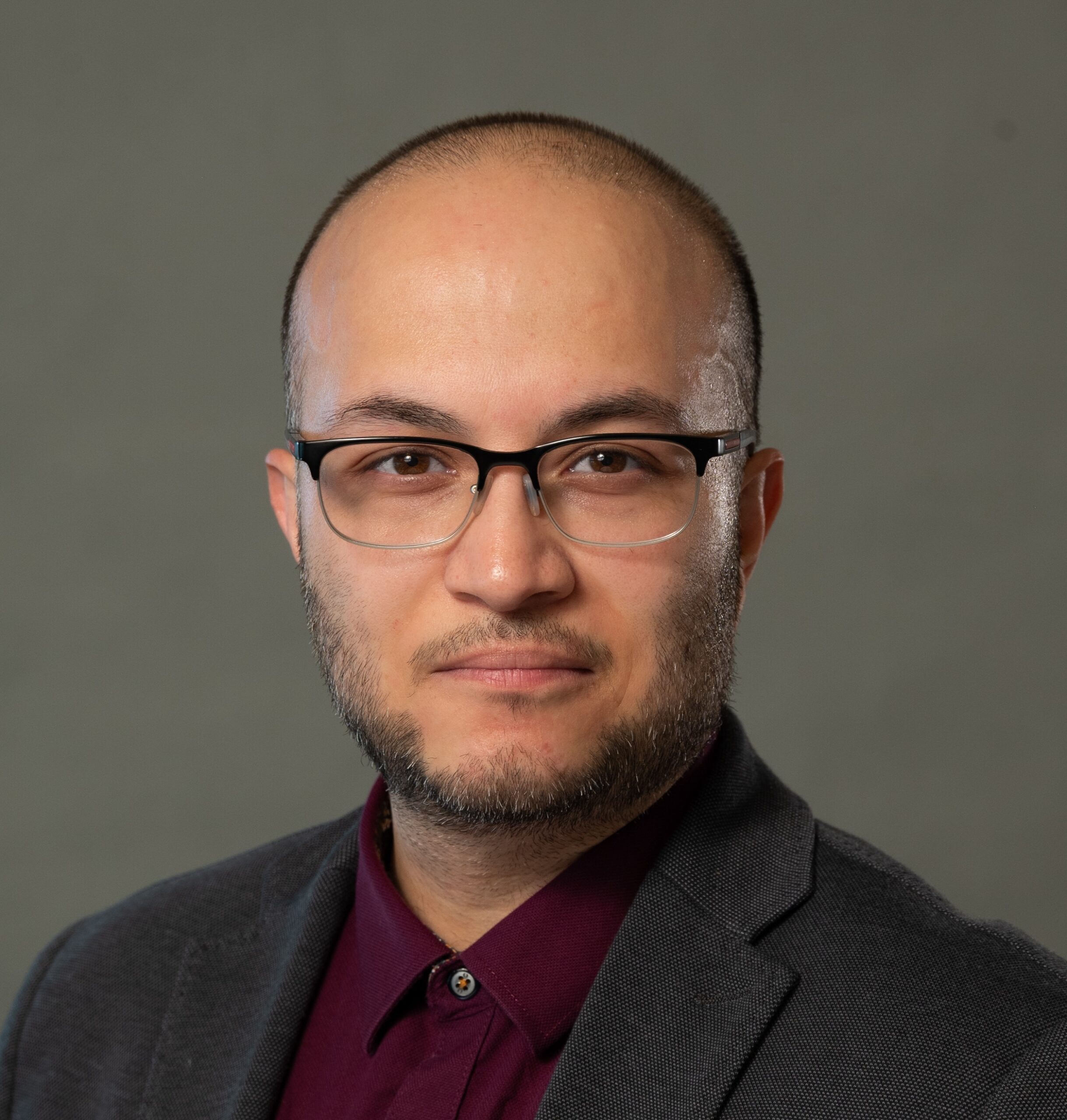The 2023 Silverstein Fellows

Aleksandra Levina, Ph.D.
Aleksandra Levina was born in Riga, Latvia. She earned her Bachelor’s degree in Cell biology from the University of Montpellier in France, and her Master’s degree in RNA Biochemistry from Sorbonne University in Paris. Aleksandra received her PhD in Structural biology and Biochemistry under the mentorship of Prof. Thomas Leonard at the Vienna University in Austria. Her PhD work focused on investigating the mechanism of activation of PDK1 enzyme, a central player in the insulin signaling pathway. Currently, she is a postdoctoral researcher at Stanford University in the lab of Prof. Monther Abu-Remaileh. Her research is focused on exploring the molecular effects of the loss of GBA1 on lysosomal metabolism.

Areej Mesleh, Ph.D.
Areej Mesleh is a postdoctoral researcher with expertise in neurodegenerative and neurodevelopmental disorders. She graduated with distinction from Qatar University in 2017 and completed her master’s degree in 2019 at Hamad Bin Khalifa University, where she investigated neuroinflammation in Parkinson’s disease. Mesleh earned her Ph.D. in 2023, focusing on proteomics in autism spectrum disorder. She is currently working on developing conformation-specific nanobodies against alpha-synuclein as a potential diagnostic and therapeutic tool for Parkinson’s disease.

Bernabe Bustos, Ph.D.
Bernabe Bustos earned his PhD in Molecular Biosciences from Universidad Andrés Bello in Chile in 2017. He is currently a Postdoctoral Research Fellow in Dr. Dimitri Krainc’s laboratory at Northwestern University’s Neurology Department in Chicago, Illinois. His research focuses on understanding the genetic basis of neurodegenerative diseases, particularly Parkinson’s disease (PD). At Northwestern, he has studied the role of rare damaging variants in PD, the contribution of short tandem repeats to PD risk at a genome-wide level, and the impact of variant-variant interactions (epistasis) on PD susceptibility. Currently, as a Silverstein Fellow, he is focusing on sporadic PD cases with genetic signatures similar to GBA1-PD patients, aiming to select them for clinical trials to assess potential benefits from GBA1-based therapies.

Casey Young, MD
Casey Young is a clinical-translational fellow at Mount Sinai in New York. His GBA1 clinical research is focused on deep phenotyping of PD with and without GBA1 variants with the goal to improve understanding of disease progression, with a focus on biomarker development, particularly related to sphingolipids and RNA expression, as well as response to therapies. He is collaborating with the Bennett Neurolipidomics Research group (University of Ottawa) to analyze how motor and non-motor clinical features intersect with sphingolipid abundances, and with the Raj lab (Mount Sinai) to integrate these clinical factors with monocyte RNAseq and single cell seq data. Dr. Young received his medical degree from the University of Hawaii in 2019, then completed his neurology residency at the Neurological Institute, Columbia University- New York Presbyterian. His clinical research fellowship and training is led by Drs. Rachel Saunders-Pullman and Susan Bressman.

Daan van Kruining, Ph.D.
Daan van Kruining is a Postdoctoral Silverstein Fellow at the University of Oxford, UK, in the lab of Prof. Frances Platt and in collaboration with Prof. Mina Ryten at the University of Cambridge. He holds a master’s degree in Fundamental Neuroscience and gained international research experience in Fukuoka, Japan, before completing his PhD at Maastricht University, where he studied lipids as biomarkers for Alzheimer’s disease. His current research focuses on sphingolipid metabolism in Parkinson’s disease (PD), particularly in the context of glucocerebrosidase (GBA) mutations. Daan leverages advanced HPLC methods to measure glycosphingolipids and uses bioinformatics to explore the expression of enzymes and cofactors involved in sphingolipid metabolism in GBA-PD.

Gadi Maayan Eshed, MD
Gadi Maayan Eshed is a certified neurologist and a movement disorders fellow at Tel Aviv Sourasky Medical Center. His research focuses on genotype-phenotype in Parkinson’s disease, including deep brain stimulation studies and immune phenotyping in GBA1 mutations carriers with and without Parkinson’s disease.

Irina Alecu, Ph.D.
Irina Alecu is a lipid biochemist and Silverstein Fellow working with Prof. Michael Schlossmacher and Prof. Steffany Bennett at the University of Ottawa. Her work focuses on developing novel liquid chromatography-mass spectrometry methods to understand the mechanistic role played by lipids in Parkinson’s disease, as well as to develop diagnostic and prognostic lipid panels. Dr. Alecu earned her PhD from the University of Zurich during which she discovered previously unidentified lipids and elucidated a novel metabolic pathway of 1-deoxysphingolipids, toxic lipids thought to be dead-end metabolites. Dr. Alecu has received a number of fellowships and grants including a Swiss National Science Foundation Scientific Exchange Grant, a Parkinson Research Consortium Crabtree Family Fellowship, and a Japan Society for the Promotion of Science Fellowship.

Jinghan Zhao, Ph.D.
Jinghan Zhao is a Ph.D. student at Baylor College of Medicine. Under the mentorship of Dr. Joshua Shulman, her research focuses on studying Gba1b, the fly ortholog of GBA1, and its relationship to neurodegenerative diseases, especially Parkinson’s disease. Jinghan’s work aims to uncover new insights into genetic interactions and molecular pathways involved in these conditions. She is passionate about advancing the understanding of disease mechanisms through innovative genetic research.

Manoj Kumar, Ph.D.
Manoj Kumar is an Assistant Professor in the Department of Microbiology and Immunology at the University of Maryland. His research focuses on understanding the molecular mechanisms of Parkinson’s disease and exploring potential therapies. He uses patient-derived microglia and dopaminergic neurons to study neuroinflammation and protein aggregation in Parkinson’s disease. The goal of his research is to prevent the death of dopamine neurons in Parkinson’s disease through early detection and intervention.

Oriol Narcis, Ph.D.
Oriol Narcis is an Instructor at the Raj Lab within the Icahn School of Medicine at Mount Sinai, New York. He earned his PhD from the Universidad de Cantabria and focuses on unraveling the complexities of the immune system—both innate and adaptive—in Parkinson’s disease, with a particular emphasis on GBA1-associated Parkinson’s. His research spans multiple layers of biological data, from genomics to transcriptomics (including bulk and single-cell RNA sequencing) and proteomics, aiming to discover fluid biomarkers that could offer new insights into disease mechanisms and therapeutic targets.

Sydney Reitz, Ph.D.
Sydney Reitz is a Postdoctoral Research Fellow in the Nuber lab at Brigham and Women’s Hospital, where she investigates the role of fatty acid metabolism in Parkinson’s Disease pathology and α-Synuclein biology. She earned her PhD in Neuroscience from Washington University in St. Louis, focusing on age-related neuroinflammation following traumatic brain injury. Sydney has developed novel immunohistochemical techniques for studying neurodegenerative disease, contributing to significant advancements in the field. Her research combines expertise in lipid metabolism and neuroinflammation, aiming to uncover therapeutic approaches for Parkinson’s Disease and related disorders.
